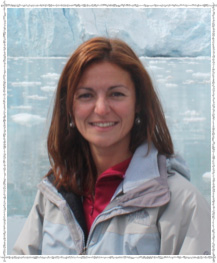A Chat with Dr. Feryal Ozel
 Can you please give us a brief summary of your background?
Can you please give us a brief summary of your background?
I was born and raised in Istanbul, Turkey. I went to Uskudar American Academy, then a 6 through 12 grade school, where I learned English and was exposed to opportunities for studying abroad. With that guidance, I applied for college in the United States and received a degree in physics and applied mathematics from Columbia University.
At that time, I was interested in particle physics and decided to do a one year master's program at Niels Bohr Institute in Copenhagen, carrying out my research at CERN. I had deferred the PhD program at Harvard University, so at the end of that year, I came back to the US to continue graduate school in astrophysics. I received my PhD in 2002 and went to Institute for Advanced Study at Princeton as a member and as a NASA Hubble Fellow. In 2004, I moved to the University of Arizona to join the faculty where I am currently a professor.
Can you also summarize your research?
My research focuses on the theoretical questions that arise in many extreme environments present in the Universe. I love working on neutron stars, which possess the densest form of matter known. These entire stars are made up of stuff that you would get if you squeezed atoms together so much that all that was left were nuclei. We can't get to those densities in laboratories on Earth so the interiors of neutron stars provide clues for how matter behaves under those circumstances. I study what the surfaces of these stars look like and how we can learn about their interior by observing their surfaces. My other expertise is in the subject of black holes. I study how they affect their environment, what the telltale signs of a black hole are, and how gravity distorts the properties of space and time around them. One of the objects I love is the supermassive black hole at the center of our own Galaxy. The black hole there has 4 million times the mass of our sun and eats from the stars and gas around it. Even though it is almost 30,000 light years away from us, we can observe and calculate with exquisite precision what its environment looks like and test the boundaries of physical theories in that regime. Finally, I also look at how galaxies and the black holes in their centers form in the first place. Cosmology is the quantitative study of the history of the Universe, and using observations and theoretical models, we put together how stars and first galaxies form, assemble, come to house huge black holes, and evolve into the population of galaxies we see around us today.
Where do you see Astronomy and Physics in Turkey? What are your suggestions to improve the research in Turkey in these areas?
There are very active groups carrying out Astronomy and Physics research in Turkey. There are excellent graduate programs and high caliber researchers in a number of universities. The participation in the international collaborations, such as large experiments or space telescopes, is also high, but needs to keep increasing steadily. Having said that, I think there isn't of a prevalent culture of basic research in Turkey. Young students do not think about going into areas of physics or astronomy (or other basic science fields). I think it is fair to say that the society hasn't fully embraced the value and importance of guiding young talent into these areas, as opposed to engineering or medicine, for example. Funding is always a challenge and physics and astronomy would benefit from additional funding. But changing the culture to attract the next generation into our fields, tweaking our education system to help flourish the curiosity the young minds naturally possess about these questions, and truly valuing the teachers and professors in basic science disciplines would go a long way toward improving the visibility of Turkey in physics and astronomy.
Is it possible to build a bridge in Astronomy and Physics? How? And how can TASSA contribute?
I think that collaborations between the US institutions and the Turkish universities in the areas of astronomy and physics would be quite fruitful. One way to increase collaborative work would be to establish visit and exchange programs for scientists for short or extended stays. I find these visits quite useful in bringing fresh ideas to both sides involved. Another opportunity would be for Turkey to buy into new telescope projects. As the scientific world moves more and more toward big telescopes and instruments, the international collaborations become essential. It would be very fruitful for Turkey to contribute to one of the new large telescopes that are being built or to support ESA/NASA programs. Finally, summer schools are a great way to educate graduate students in a given topic in a relatively short amount of time. Two years ago, I co-taught such a course in ITAP in Turkey and was very impressed with the scientific outcome as well as the exposition of Turkish PhD students to different people and subjects. TASSA could perhaps advertise such opportunities and seek collaborative agreements between US and Turkish universities.